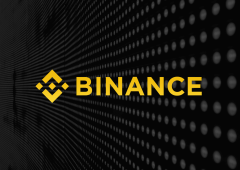Ethereum’s Centralization Undermines Its Core Principles – Charles Hoskinson
25.09.2024 18:30 2 min. read Alexander Stefanov
Charles Hoskinson, the creator of Cardano (ADA), has sharply criticized the Ethereum (ETH) blockchain, likening it to a “dictatorship.”
In a recent interview, he expressed concerns that Vitalik Buterin, Ethereum’s co-founder, holds excessive power over the network’s guidelines, which contradicts the decentralized principles Ethereum purports to uphold.
Hoskinson pointed out that Cardano’s governance model, grounded in its Voltaire era, enables community involvement in decision-making, thus preventing power from being centralized in a single individual. He noted that by incorporating these elements, Cardano effectively avoids both the chaos seen in Bitcoin and the “dictatorship” of Ethereum, highlighting a balance between decentralization and cohesive governance.
He further questioned Ethereum’s reliance on Buterin, implying that the network’s future adaptability could be at risk without his influence. Hoskinson also commented on Ethereum’s strategic pivot from its initial plan to scale using sharding technology to its current focus on rollups and layer two solutions.
Although this shift has made short-term scaling more manageable, he warned of the emergence of “extractive layer two solutions” and a decline in Ethereum’s base layer activity and revenue.
Overall, Hoskinson’s comments reflect his view that Ethereum’s governance and future path are overly reliant on the vision of a single individual rather than being shaped by a decentralized community.
-
1
German State-Owned Development Bank Issues €100 Million Blockchain Bond
11.07.2025 7:00 2 min. read -
2
Cardano and Ethereum Lead in Developer Activity as GitHub Commits Surge
14.07.2025 12:00 1 min. read -
3
Tether Ends Support for Five Blockchains in Infrastructure Shift
12.07.2025 11:30 2 min. read -
4
BNB Chain Upgrades and Token Delistings Reshape Binance Ecosystem
16.07.2025 22:00 2 min. read -
5
Ripple Powers UAE’s First Tokenized Real Estate Project via XRPL
16.07.2025 21:00 2 min. read
Weekly Crypto Roundup: Bitcoin Hits ATH, Ethereum Surges, Trump Advances Crypto Reforms
Analyzing the latest updates shared by Wu Blockchain, this past week underscored a pivotal shift in the crypto landscape. Bitcoin surged to a new all-time high of $123,226, pushing the overall crypto market cap beyond $4 trillion—a milestone reflecting renewed investor confidence and accelerating institutional flows.
Charles Schwab to Launch Bitcoin and Ethereum Trading Soon, CEO Confirms
Charles Schwab is preparing to roll out spot Bitcoin and Ethereum trading, according to CEO Rick Wurster during the firm’s latest earnings call.
BlackRock Moves to Add Staking to iShares Ethereum ETF Following SEC Greenlight
BlackRock is seeking to enhance its iShares Ethereum Trust (ticker: ETHA) by incorporating staking features, according to a new filing with the U.S. Securities and Exchange Commission (SEC) submitted Thursday.
IMF Disputes El Salvador’s Bitcoin Purchases, Cites Asset Consolidation
A new report from the International Monetary Fund (IMF) suggests that El Salvador’s recent Bitcoin accumulation may not stem from ongoing purchases, but rather from a reshuffling of assets across government-controlled wallets.
-
1
German State-Owned Development Bank Issues €100 Million Blockchain Bond
11.07.2025 7:00 2 min. read -
2
Cardano and Ethereum Lead in Developer Activity as GitHub Commits Surge
14.07.2025 12:00 1 min. read -
3
Tether Ends Support for Five Blockchains in Infrastructure Shift
12.07.2025 11:30 2 min. read -
4
BNB Chain Upgrades and Token Delistings Reshape Binance Ecosystem
16.07.2025 22:00 2 min. read -
5
Ripple Powers UAE’s First Tokenized Real Estate Project via XRPL
16.07.2025 21:00 2 min. read


